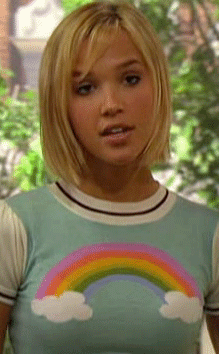

Maintained by: Joshua
Contact Information: Email / Form / Tweet Us
Established on: July 5, 2008
Re-Established on: May 30th, 2015 & April 3rd, 2020
Fans online: 4 Users Online
Most Users Ever Online Is 522 On August 24, 2024 @ 3:16 pm




- ‘Rescue HI-Surf’ Canceled By Fox After One Season May 7, 2025
- The Vampire Diaries Costars Arielle Kebbel and Zach Roerig Confirm They’re Dating with Steamy Kiss April 15, 2025
- Arielle Kebbel Cast ‘I Can Only Imagine Sequel’ March 12, 2025
- ‘Rescue Hi-Surf’ Episodes Thirteen – Sixteen Screencaptures Added March 9, 2025
- ‘Rescue Hi-Surf: Pau’ High-Def Screencaptures November 5, 2024
- ‘Rescue Hi-Surf: Drift’ HD Screencaptures Added November 4, 2024
- ‘Rescue Hi-Surf: XXL’ High-Def Screencaptures Added October 20, 2024
- Arielle Attends Warner Bros. Television Fall Season Party October 12, 2024
- ‘Rescue Hi-Surf: Kick Out’ HD Screencaptures Added October 9, 2024

It has been reported that NBC has canceled the dramatic thriller series Lincoln Rhyme: The Hunt for the Bone Collector, after just one season. Variety shared the news and stated that NBC declined to comment. The first, and only season of Lincoln Rhyme concluded in March.
Lincoln Rhyme: Hunt for the Bone Collector followed NYPD officer Amelia Sachs (Arielle Kebbel), who partners with Lincoln Rhyme (Russell Hornsby) — a disabled forensic expert — and his team to solve cases while pursuing a legendary serial killer known as the Bone Collector. The series was based on Jeffery Deaver’s 1997 novel The Bone Collector. In addition to Kebbel and Hornsby, the series also co-starred Roslyn Ruff, Ramses Jimenez, Brooke Lyons, Tate Ellington, Michael Imperioli. The role of the Bone Collector was played by Irish actor Brían F. O’Byrne. Notably, Angelina Jolie and Denzel Washington starred in a 1999 film adaptation of The Bone Collector.
In February, Hornsby spoke with Collider about the show, saying that one of the things that most drew him to the role was the “challenge of creating something new” for himself. “I recognize, respect and honor what the movie did, but I also realize that, when you’re doing a television series, it’s definitely something different and more in-depth. Also, it is 20 years later,” he said. Hornsby says he “wanted to accept the challenge of adding new breath, new life, and new depth” to the character of Lincoln Rhyme. “I consider myself an actor’s actor, so to speak, and I like to show the various dimensions and levels that I can play at, and this presented that challenge to do that.”
Regarding his development of Rhyme, Hornsby said that he always “appreciated” the known layers of the character, and decided to “lean into that, a little bit more.” He wanted to explore how Rhyme had a confidence so profound that is was “bordering on arrogance.” He also loved Rhyme’s “cut retorts, and felt that both “elements are interesting to watch.” He added, “If you play it right, it’s interesting, but it also creates conflict, and it gives the character somewhere to go and, possibly, somewhere to come back from. You want a character that’s possibly unlikeable, or that people have to warm up to because that gives audiences something to lean into.”

Maintained by: Joshua
Contact Information: Email / Form / Tweet Us
Established on: July 5, 2008
Re-Established on: May 30th, 2015 & April 3rd, 2020
Fans online: 4 Users Online
Most Users Ever Online Is 522 On August 24, 2024 @ 3:16 pm




- ‘Rescue HI-Surf’ Canceled By Fox After One Season May 7, 2025
- The Vampire Diaries Costars Arielle Kebbel and Zach Roerig Confirm They’re Dating with Steamy Kiss April 15, 2025
- Arielle Kebbel Cast ‘I Can Only Imagine Sequel’ March 12, 2025
- ‘Rescue Hi-Surf’ Episodes Thirteen – Sixteen Screencaptures Added March 9, 2025
- ‘Rescue Hi-Surf: Pau’ High-Def Screencaptures November 5, 2024
- ‘Rescue Hi-Surf: Drift’ HD Screencaptures Added November 4, 2024
- ‘Rescue Hi-Surf: XXL’ High-Def Screencaptures Added October 20, 2024
- Arielle Attends Warner Bros. Television Fall Season Party October 12, 2024
- ‘Rescue Hi-Surf: Kick Out’ HD Screencaptures Added October 9, 2024





















